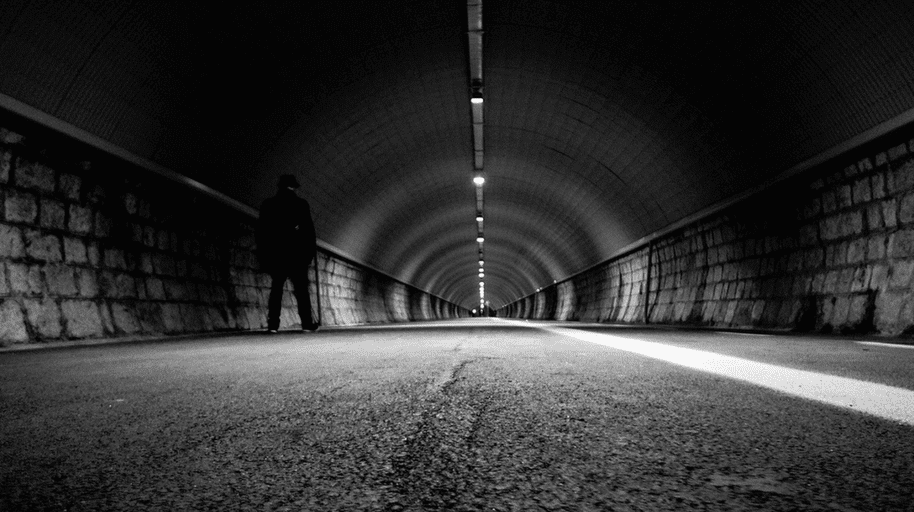What is it like to feel alone with your struggle? You are having a hard time in your life. There is pain, frustration, a desperateness and you feel completely alone with it.
You may have people around you who care. They may even be professionals such as doctors, nurses, support workers, counselors, but when it comes down to it, they are all paid to be in your presence.
You seriously wonder if anyone would truly care about you if they knew the struggle you were facing every day. You think that you might scare them off.
Multi-choice question.
When you start to talk about your struggles, do you get any of these responses?
A. Silence – they don’t have the answers, so they go quiet.
B. Band-aid formulas – A quick answer to avoid any further engagement and so the problem is solved (for them).
C. Medication – they ask if you have been taking your medication as if medication solves all the pain you are feeling.
D. Attack – they turn it back on you and tell you to not talk like that. ‘Harden up, get over it.’ They decide you are a victim, a P.L.O.M. (Poor Little Old Me).
E. Blank – I will leave this blank, and you can respond with your own experience.
There is a loneliness of the soul, an unspeakable loneliness.
Do you feel alone in your struggle?
I think this is the number one comment I have heard from talking with hundreds of people with Mental Illness. The struggle point for them is a deep sense of loneliness.
I am not talking about the victim moan of ‘Nobody cares about me’, instead this is a deeper groan of solitude unwanted.
Ron Rolheiser describes three types of loneliness.
1. A loneliness that can be spoken about. When you are lonely in certain ways, no matter the pain, you can still put out a hand, and someone will take it, hold it, offer empathy, and the loneliness itself can lead to a deeper sense of being loved and valued.
2. A loneliness that can be spoken of because its pain is greater than its shame. It drives you to your knees, but also more deeply into humanity. Nature equips you to deal with this. This kind of loneliness hurts you, but it does not damage you. It can be talked about, no small thing: Anything can be borne if it can be shared.
3. A loneliness that cannot be shared, which is “unspeakable” because it is experienced in a way that is so private and humiliating that, were you to speak of it, you would further damage an already over-fragile sense of self that has been made so fragile by the loneliness itself.
You experience this kind of loneliness whenever you are alone in something in a way that you cannot share with anyone else because the loneliness itself feels like a private sickness, like a thing of shame, which makes you so vulnerable that any attempt to share it with someone would only make things worse and be a further humiliation.
You experience this, “unspeakable loneliness”, in those areas of life where shame and insecurity seep in, where your relationships become one-sided, where you get walked-on, walked-away from, get dumped, suffer abuse, get bullied on the playground, are the one who is never asked out, get chosen last, are too weak to defend yourself, where your body and feelings aren’t right, where you aren’t bright enough, aren’t attractive enough, have bad skin, varicose veins, are overweight, have an over-bearing mother you are ashamed of, where you end up being the one who has to beg, who needs to ask, who has to sit by the phone hoping it will ring, where you are the one who is pushed away because you are too obsessed, too needy, too desperate, too different, too weak, too angry, too compromised, too wrapped up in some private wound, weakness, sickness, or history to be that wonderful, normal, resilient, irresistible person everyone is looking for.
See more of his article at Unspeakable Loneliness
This is a loneliness that needs an intervention from the outside.
It is a loneliness that has you in a ditch, unconscious, from the attack of the robbers of life. You can’t speak; you’re naked, vulnerable and barely alive.
Sound familiar?
Jesus was asked about love one day and who our neighbor.
So he tells a parable that we have come to know as the Parable of the Good Samaritan.
The focus point of the story is a man who was traveling along a road. Encountering some thugs he was beaten, robbed, left half dead and crucially, all alone.
In his plight of unspeakable loneliness, various people pass by him. Jesus points the finger at the religious and self-righteous as those who refuse to engage with unspeakable loneliness of the man.
Then comes someone who has experienced the unspeakable loneliness. The Samaritan stops his journey and engages with the man. He takes care of him. He spends time attending to his needs. He sacrificially gives up his agenda for the sake of the man.
This parable has often been used as a kind of motivational prompt or pep talk to get you to do more for others. A sort of motivation by stick rather than carrot, and yes there is that call, but I think that Jesus was pointing us to something deeper.
The Good Samaritan was himself.
Jesus was, and is, on a rescue mission for all of us stuck in a ditch of unspeakable loneliness.
He gives us hope by reaching into our ditch and offering companionship and healing from the robbers of life.
The most significant people for me, in my ditch dwelling depression, are not the ones offering me the multi-choice options mentioned above. They are the people who say these words
‘No matter what you have done, or what has been done to you, I still want to know you and offer what I can in love.
We are all desiring love without a mask. That we will be loved for who we really are. No makeup, no pretense, no mask, no fear.
I am not alone.
Perhaps this blog can be a place where others won’t feel they are alone in their struggle. They will know that at the very least there is someone taping out words on a keyboard that knows the unspeakable loneliness they are experiencing.
Perhaps we can form little communities of hope where we can connect at the level of the soul. Where what is unspeakable can be shared, loved, held and connected with.
What do you think?
- Do you, at times, feel alone in the struggle?
- What could we do, as readers, to help break each other’s shackles of unspeakable loneliness?
Barry Pearman
Photo Credit: i k o via Compfight cc






One thought on “Do You Feel Alone in Your Struggle?”
to answer the questions in order:
1. yes. Recently, for 3 months now, the last one…
2. I wouldn’t dream of sharing the unspeakable online… no knowing who might read it. After 3 months of wrestling with it and it’s underlying causes on my own and with God, knowing all the while that eventually it needed to be named in order to find release, finally I think i might know who I could trust enough with it.
But you’re spot on with:
“you cannot share with anyone else because the loneliness itself feels like a private sickness, like a thing of shame, which makes you so vulnerable that any attempt to share it with someone would only make things worse and be a further humiliation.”
yes, yes, a thousand time yes.